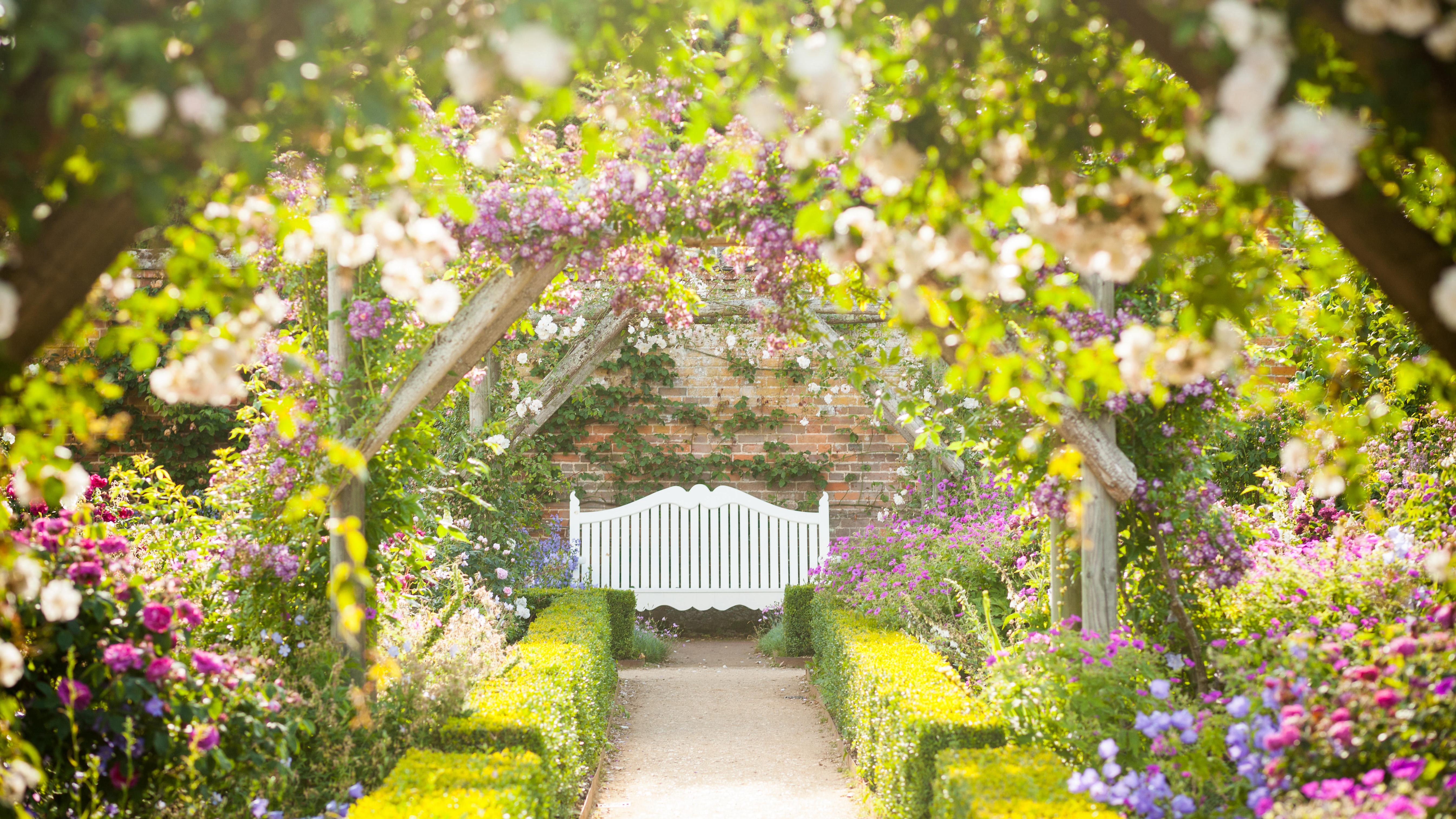'I'm the expert who wrote the RHS's guide to roses — here's why pruning them right now is almost certainly a terrible mistake'
More roses die from over-pruning than any other cause so what’s the reasoning underpinning this horticultural habit? Charles Quest-Ritson, the garden expert who wrote the RHS Encyclopedia of Roses, takes a closer look.


When should I prune my roses? The answer depends on when you feel like it and when it suits the roses. What’s more, it depends on why you want to prune them in the first place. Pruning shrubs — and that includes roses — is not compulsory. We have all seen gardens where no one has done any pruning for years and yet the bushes never fail to produce a copious crop of roses. And the same is true of camellias, magnolias, buddlejas or any other shrub that we grow for its flowers. Pruning them, however, may help to improve the quality or quantity of what they offer us.
Roses are shrubs and the best time to prune all shrubs is immediately after they have flowered. Take rambler roses, for example: all those once-flowering varieties such as ‘American Pillar’ and ‘Dorothy Perkins’. When they have finished flowering at the end of July, cut off all the long sprays that carried this year’s crop of flowers. The plant will then make new long growths to flower next year. But it doesn’t matter if you don’t touch them — you will still get lots of flowers next year anyway.
More of Charles Quest-Ritson on roses
There’s one very good reason why you might not want to cut back a rose after it has flowered—the rose hips that provide a second season of interest. The flowers of Rosa moyesii are pleasant enough in early summer, but the long flagon-shape hips in autumn are much more interesting. And the same is true of many other rose species such as R. virginiana and, some would say, our native R. spinosossima, the Scots rose with black hips. Keep your secateurs away until after the birds have had their fill, then prune them in winter — or don’t, if you have better things to do. The roses will survive and still produce flowers and fruit again next year.
Why are we told we must prune our roses? It’s a hangover from Victorian times. Rose-growing in those days was all about winning prizes at shows. Gardeners cut their roses hard, manured them generously and allowed only one stem per plant to grow up. It would then produce only one bloom at the top that might be large enough to earn a gold medal. Pruning anything was a job to keep the garden boys busy in winter. And so the principle of hard pruning in the dormant season became the orthodox norm. The flowers may be larger, but please remember that the more you cut back your rosebush, the fewer its flowers will be.
"Please remember that pruning is only an option, not a duty. "
No rose should be pruned when you plant it — and perhaps not at all for a couple of years after. More roses die from over-pruning than any other cause. Let the bush get established and develop a woody structure. If you do not prune your rose, you will have many more flowers and they will start to flower several weeks earlier.
A few rose species flower more than once — some of them even continuously. The best example is Rosa rugosa, which will still be sending out flowers when the first hips are ripening late in August. And the hips are large, too — shaped like fat tomatoes. It would be a pity to lose such a handsome feature simply because someone has told you to prune back the bush. Do it in winter, if you wish, but please remember that pruning is only an option, not a duty.
The rules are different for garden roses such as Hybrid Teas and Floribundas that flower repeatedly. Here, I include David Austin’s roses, whose main ancestors were floribundas. Austin insisted that his roses should be allowed to grow up and trimmed to make an attractive shapely plant that would be covered in flowers from top to bottom. The ‘shapely’ part is easy — cut your roses to whatever shape you like; Austin suggested a rounded thicket of stems covered in leaves and roses and said this was best done in winter to encourage fresh growth and plentiful blooms for the following season.
Exquisite houses, the beauty of Nature, and how to get the most from your life, straight to your inbox.
My own experience of pruning many thousands of garden roses over the years is that it doesn’t matter when I do so. If a rose starts to spill over a path, I cut it back, whatever the season. Otherwise, I prefer pruning between March and July, when I can see what is best for the plant. I look at its structure and cut out anything that looks dead, damaged or diseased. Then I decide how best to produce not a shapely plant, but a balanced one.
This is easier to gauge in summer than winter. I cut off branches that look as if they are not going to flower, so that buds further down will then break into growth and bloom a few weeks later. My aim is to re-invigorate the rosebush by encouraging new growth. I have no objection to pruning in winter, not least because it makes an owner feel good to see a neat mass of cleanly pruned twigs. But do please remember that pruning is not compulsory — and try to understand the consequences for the plant of wielding your secateurs, whatever the season you choose to do so.
Charles Quest-Ritson is a historian and writer about plants and gardens. His books include The English Garden: A Social History; Gardens of Europe; and Ninfa: The Most Romantic Garden in the World. He is a great enthusiast for roses — he wrote the RHS Encyclopedia of Roses jointly with his wife Brigid and spent five years writing his definitive Climbing Roses of the World (descriptions of 1,6oo varieties!). Food is another passion: he was the first Englishman to qualify as an olive oil taster in accordance with EU norms. He has lectured in five languages and in all six continents except Antarctica, where he missed his chance when his son-in-law was Governor of the Falkland Islands.
